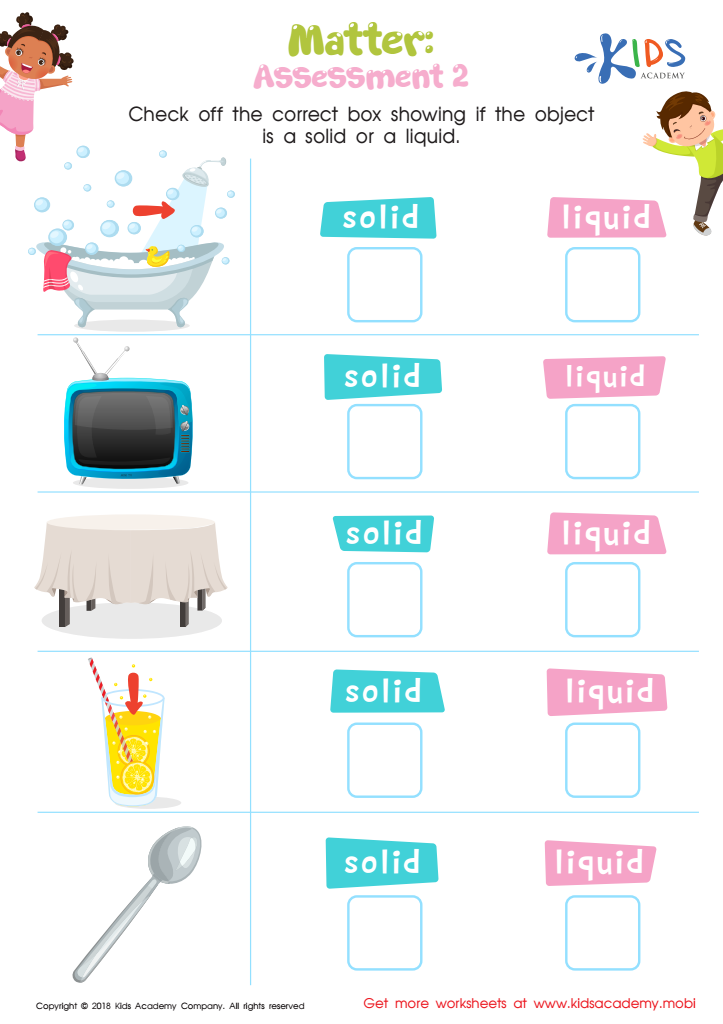Normal Science worksheets activities
10 filtered results
-
From - To


Animals and Plants: Assessment 2 Worksheet


Animals and Plants: Assessment 1 Worksheet


Ecosystems: Assessment 2 Worksheet


Ecosystems: Assessment 1 Worksheet


Space: Assessment 2 Worksheet


Space: Assessment 1 Worksheet


Light and Sound: Assessment 2 Worksheet


Matter: Assessment 2 Worksheet


Matter: Assessment 1 Worksheet


Force and Interactions: Assessment 1 Worksheet
Normal Science worksheets activities are an invaluable tool in the realm of education, particularly in the teaching and learning of scientific concepts. These worksheets play a crucial role in reinforcing the knowledge acquired in class, providing a structured approach for students to engage with the material at a deeper level.
First and foremost, Normal Science worksheets activities are designed to cater to a wide range of learning styles. Whether a student is a visual, auditory, or kinesthetic learner, worksheets can be tailored to suit their specific needs, making the learning experience more inclusive and effective. This personalized approach not only enhances comprehension but also boosts the confidence of students as they navigate through the complexities of science.
Moreover, these activities encourage independent learning. By working through problems and experiments on their own or in small groups, students develop critical thinking and problem-solving skills. This autonomy in learning fosters a sense of responsibility and curiosity, driving students to explore beyond the confines of the syllabus and apply their knowledge in real-world scenarios.
The versatility of Normal Science worksheets activities also means they can be used across all age groups and educational levels. From simple coloring sheets that introduce young learners to the basics of biology to more complex calculations and data analysis for older students, worksheets provide a scalable tool that can be adapted to any topic within the vast field of science.
Feedback is another crucial aspect of learning that is effectively facilitated by these worksheets. Teachers can quickly assess a student's understanding, identify areas of weakness, and provide targeted support. This immediate feedback loop ensures that misconceptions are corrected early on, paving the way for a solid foundation in scientific principles.
In conclusion, Normal Science worksheets activities are much more than just paper tasks; they are a dynamic component of science education. By promoting engagement, supporting diverse learning styles, encouraging independence, and facilitating feedback, they play an essential role in nurturing future scientists and informed citizens.

 Assign to the classroom
Assign to the classroom










